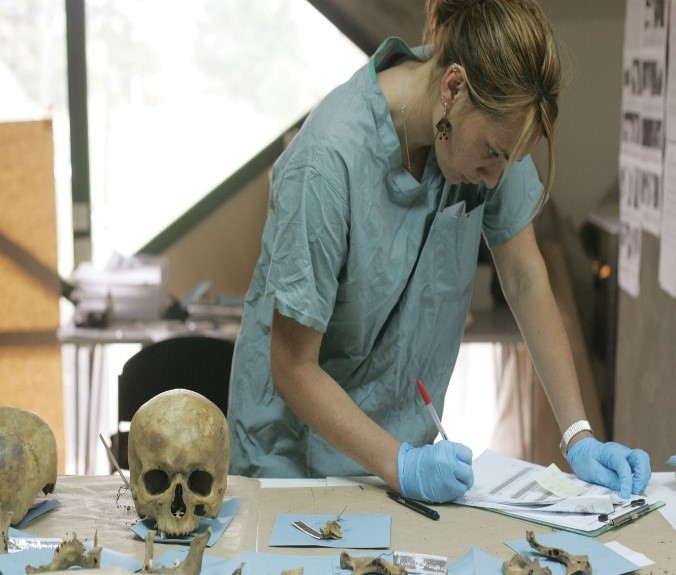ANTHROPOLOGY
- INTRODUCTION
- CAREER OPPORTUNITIES
- COLLEGES IN INDIA
- COLLEGES
- COLLEGES IN ABROAD
- SPECIALISATION
- SKILL SET
- ELIGIBILITY
- ROLES & RESPONSIBILITITES
Are you fascinated by the course of human growth? From being a Neanderthal human to Modern human, evolution of culture, myths, rituals and norms, development of human society from its most primitive hunter-gatherer to the complex modern form, development and evolution of human languages?
If yes, then Anthropology is a great option for you. You can make fascinating discoveries about human past and even find some future trends.

Career Introduction:
Anthropology is the study of humans’ past and present. To understand the full sweep and complexity of cultures across all of human history, anthropology draws and builds upon knowledge from the social and biological sciences as well as the humanities and physical sciences.
A central concern of anthropologists is the application of knowledge to the solution of human problems.
- They study how societies form, how norms and rituals form, how languages develop, how communities cultures develop, how food habits develop and so on.
- Their work help us to understand how humans evolve and how they cope up with the societal changes and environmental landscape to live a better life.
- Work in 4 sectors – Education, Corporate, Non- Profit or Government
- Law/ Policy Making
- Researcher
- Advisor in Govt. Committees such as NitiAayog
- Capacity Building Trainer at Non – Profit Organization
- Program Associate/ Field Enumerator
- Community based Researcher
- Crime Investigation Consultant
- Content Writer
- HR Representative/ Diversity Officer
- Museums/ Art Gallery Curator
- Consultant for Storytelling /Screenwriting
- Miranda House, Delhi University
- Panjab University, Chandigarh
- Amity Institute of Anthropology, Noida
- Indira Gandhi National Open University (IGNOU), Delhi
- University of Allahabad, Uttar Pradesh
- Indian Institute of Technology, Hyderabad
- Government Sarojini Naidu Girls College, Bhopal
- Andhra University, Visakhapatnam
- Gurucharan College Silchar, Assam
- University of Rajasthan, Jaipur
- Gauhati University, Assam
- Hans Raj college, Delhi University
- Hemvati Nandan Bahuguna Garhwal University, Uttarakhand
- National Post Graduate College, Lucknow
TOP COLLEGES
- Hans Raj college, Delhi
- Course: B.Sc in Anthropology
- Eligibility: 10+2 with PCB with 55% marks
- Admission process: Marks based
Panjab University, Chandigarh
Eligibility: 10+2 with PCM/B with 50% marks
Admission Process: PUCET
| Name of the Subject | Number of Questions | Marks allotted to each Question | Total Marks for the paper | Duration of the Paper |
| Paper-I Physics | 60 | 2 | 120 | 70 Minutes |
| Paper-II Chemistry | 60 | 2 | 120 | 70 Minutes |
| Paper-III Biology | 60 | 2 | 120 | 70 Minutes |
| Paper-IV
Math |
60 | 2 | 120 | 70 Minutes |
Merit based upon: Qualifying Examination (+2): 25% and Entrance Test:75%
NOTE: Students have to choose one paper from 3 and 4 paper
Amity University, Nodia
Eligibility - 10+2
Admission process - (10+2%)+ English Essay+ Interview
Hemvati Nandan Bahuguna Garhwal University, Uttarakhand
Eligibility: 10+2 with 50% marks in PCB
Selection process: Merit based
National Post Graduate College, Lucknow
Eligibilty - 10+2 with any stream with minimum 45% marks
Admission process - Entrance Exam
Exam pattern - Multiple choice questions
Syllabus - Out of 100 questions, 50 shall be from the +2 subjects, 20 from general studies, 20 from reasoning and aptitude, 5 questions each from English and Hindi languages.
Negative marking - NO
Exam duration - 90 Minutes
Colleges at Post Graduate Level
College – Miranda House, Delhi University
Course – M.Sc. Anthropology
Duration – 2 year
College – Panjab University, Chandigarh
Course - M.Sc. Anthropology (2 year)
Ph.D. Anthropology (3 year)
College - Amity Institute of Anthropology, Noida
Course – M.Sc. Anthropology (2 year)
M.Phil. Anthropology (1 year 6 months)
Ph.D. Anthropology (Part Time – 4 year 6 month)
College – Indira Gandhi National Open University (IGNOU), Delhi
Course – Masters Anthropology ( 2 year)
College – University of Allahabad, Uttar Pradesh
Course – MA Anthropology (2 year)
Ph.D. Anthropology (3 year)
M.Sc. Anthropology (2 year)
College - Indian Institute of Technology, Hyderabad
Course – M.Phil. Anthropology (1 year 6 month)
| Institution | Location |
| Harvard University | United States |
| University of Oxford | United Kingdom |
| University of Cambridge | United Kingdom |
| London School of Economics & Political Science | United Kingdom |
| University of California, Berkeley | United States |
| University of Chicago | United States |
| The Australian National University | Australia |
| Stanford University | United States |
| University of Michigan | United States |
| University of Toronto | Canada |
- Cultural anthropology
- Biological anthropology
- Archaeology anthropology
- Applied anthropology
- Linguistic anthropology
- Artistic bent of mind
- Passion and imaginative skills.
- Creativity
- Art of sketching or drawing
- Patience, discipline and dedication to work
- Sound understanding of anatomy of humans, animals or birds and body movements and lighting effects.
- Good communication skill
- Good sense of colour, proportion, size, design, visualizations, knowledge of background art and layout.
- Expertise in computer design software
10+2 stream: Preferable PCB
- Plan and direct research to characterize and compare the economic, demographic, health care, social, political, linguistic, and religious institutions of distinct cultural groups, communities, and organizations
- Formulate general rules that describe and predict the development and behaviour of cultures and social institutions
- Explain origins and physical, social, or cultural development of human beings including their physical attributes ,traditions, beliefs and settlement patterns
- Develop intervention procedures, using techniques such as individual and focus on group interviews, consultations, and participant observation of social interaction
- Collaborate with economic development planners to decide on the implementation of proposed development policies
- Build geographic information systems (GIS) to record, analyze, and cartographically represent the distribution of languages, cultural and natural resources







